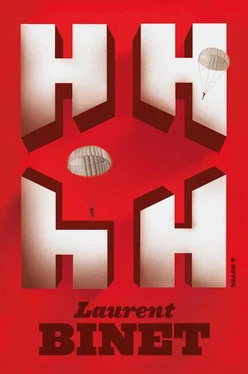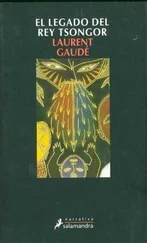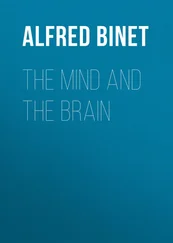While this was happening, Himmler was already worrying about him like a father. I have before me a letter dated May 15, 1940, written from his private train (the Sonderzug Heinrich ) and addressed to his “very dear Heydrich,” which shows just how solicitous Himmler was toward his right-hand man: “Give me your news every day if you can.” Knowing all he knew, Heydrich was a very valuable man.
Only two days later, Heydrich was picked up by a German “patrol”—his own men from Einsatzgruppen D—who had just liquidated forty-five Jews and thirty hostages. He’d been shot down by Soviet antiaircraft fire, crash-landed, spent two days and two nights in hiding, and finally crossed the German lines on foot. Returning home filthy and unshaven, he was also, according to his wife, quite unnerved by his misadventure, although it did give him what he’d wanted: the Iron Cross, first class—a highly respected medal in the German military. Following this glorious feat, however, he was never allowed to take part in any more aerial battles. Hitler himself, horrified in hindsight by the story of the Berezina, appears to have officially forbidden this. So, in spite of his efforts and his undeniable impetuosity, Heydrich never scored a single kill. His career as a pilot ended on this disappointing note.
Natacha reads the chapter I’ve just written. When she reaches the second sentence, she exclaims: “What do you mean, ‘The blood rises to his cheeks and he feels his brain swell inside his skull’? You’re making it up!”
I have been boring her for years with my theories about the puerile, ridiculous nature of novelistic invention, and she’s right, I suppose, not to let me get away with this skull thing. I thought I’d decided to avoid this kind of stuff, which has, a priori, no virtue other than giving a bit of color to the story, and which is rather ugly. And even if there are clues to Himmler’s panicked reaction, I can’t really be sure of the symptoms of this panic: perhaps he went red (that’s how I imagine it), but then again, perhaps he turned white. This is quite a serious problem.
I defend myself halfheartedly: it’s more than likely that Himmler had some kind of headache, and anyway, this thing about the swelling brain is just a cheap metaphor with which to express his fear. But even I’m not convinced by this. The next day, I delete the sentence. Unfortunately, that creates an emptiness that I don’t like. I’m not sure why, but I’m not at all keen on the segue from “smacked him in the face” to “He’s just heard the news.” Too abrupt: I miss the link provided by my skull metaphor. So I feel obliged to replace the deleted sentence with another, more prudent one. I write something like: “I imagine that his face, like a bespectacled little rat’s, must have turned red.” It’s true that Himmler’s fat cheeks and mustache made him rather rodentlike, but obviously this phrase lacks gravitas. I decide to remove “bespectacled.” The effect of “little rat’s,” even without the spectacles, still bothers me. You can see the advantage of this option, however, with its cautious qualifications: “I imagine…,” “must have…” With a hypothesis openly presented as such, I avoid the clash with reality. I don’t know why I feel the need to add: “His face is flushed.”
I had this vision of Himmler red-faced and with a blocked nose (perhaps because I’ve had a nasty cold myself for the past four days) and my tyrannic imagination wouldn’t budge from this idea: I wanted a detail of this kind for the Reichsführer’s face. But clearly I wasn’t happy with the result: I got rid of it once again. I contemplated this nothingness between the first and third sentence for a long time. And, slowly, I began to type: “The blood rises to his cheeks and he feels his brain swell inside his skull.”
As usual, I think of Oscar Wilde. It’s the same old story: “I was working on the proof of one of my poems all the morning, and took out a comma. In the afternoon I put it back again.”
Heydrich, who I imagine settled comfortably in the back of his black Mercedes, presses his briefcase tightly to his knees. It contains probably the most important document of his career, and of the Third Reich’s history.
The car zooms through the suburbs of Berlin. Outside, it’s a pleasant summer evening, and it’s difficult to imagine that the sky will soon be filled with black shapes dropping bombs. But a few damaged buildings, a few destroyed houses, a few hurrying passersby, is all it takes to bring to mind the extraordinary relentlessness of the Royal Air Force.
It’s already more than four months since Heydrich asked Eichmann to write the first draft of this document in order to get Göring’s approval. But they also needed the agreement of Rosenberg, the minister in charge of the eastern territories. And this nonentity is the one who made things difficult! Since then, Eichmann has worked hard on revising the text and all the problems seem to have been ironed out.
We are in the heart of the forest, north of Berlin. The Mercedes stops at the gates of a villa guarded by heavily armed SS men. This is Karinhall, the little baroque palace that Göring had built to console himself after the death of his first wife. The guards salute, the gates open, and the car sweeps up the driveway. Göring stands waiting on the steps, his expression jolly, his body squeezed into one of those eccentric uniforms that have earned him the nickname “Perfumed Nero.” He greets Heydrich effusively, happy to meet the fearsome head of the SD in person. Heydrich is well aware that everyone considers him the most dangerous man in the Reich, and it’s a source of vanity for him, but he also knows that if all the Nazi dignitaries court him so insistently, it is above all to try to weaken Himmler, his boss. Heydrich is an instrument for these men, not yet a rival. It’s true that in the devilish duo he forms with Himmler, he is thought to be the brains (“HHhH,” they say in the SS: Himmlers Hirn heisst Heydrich —Himmler’s brain is called Heydrich), but he is still only the right-hand man, the subordinate, the number two. Heydrich is so ambitious that he will not be satisfied with this situation forever. But when he studies how the balance of power within the Party has evolved, he congratulates himself for having stayed faithful to Himmler, whose power continues to grow while Göring mopes in his mansion, half in disgrace since the Luftwaffe’s failure in England.
Yet Göring is still officially in charge of the Jewish question, and that’s why Heydrich is here tonight.
Before they get to the matter in hand, Heydrich must first suffer his host’s childish enthusiasms. Fat Hermann wants to show him his electric train set, a gift from the Prussian National Theater. He is very proud of it and plays with it every evening. Heydrich bears this patiently. After going into raptures over the private cinema, the Turkish baths, a room with a pharaonic ceiling, and even a lion called Caesar, he finally manages to sit down with Göring in a wood-paneled office. Now he can take out his precious paper, which he gives to the Reichsmarschall to read:
The Marshal of the Reich of Greater Germany
Delegate of the four-year plan
President of the council of ministers for the defense of the Reich
For the attention of:
Head of the Gestapo and the SD
SS-Gruppenführer Heydrich
Berlin
Supplementary to the task that has been entrusted to you by the edict of January 24, 1939, to solve the Jewish problem by means of migration or evacuation in the best possible way according to present conditions, I hereby assign you the task of making all the necessary organizational, practical, and financial preparations in order to facilitate a total solution of the Jewish question in all the territories of Europe under German occupation.
Читать дальше












